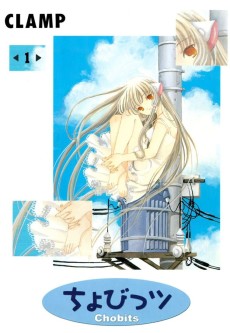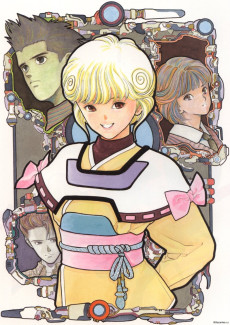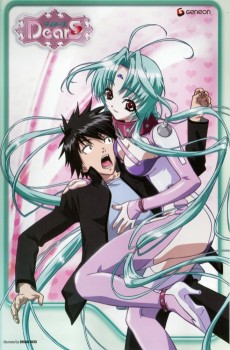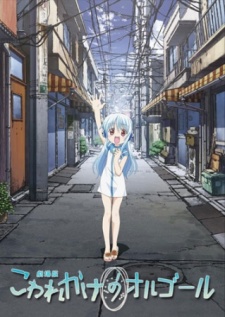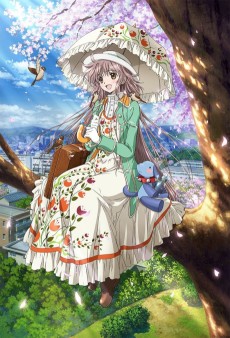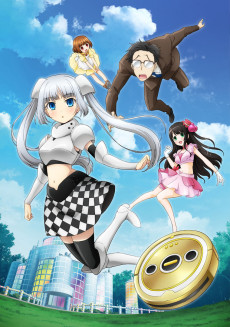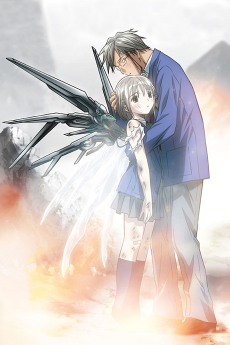CHOBITS
STATUS
COMPLETE
EPISODES
26
RELEASE
September 25, 2002
LENGTH
24 min
DESCRIPTION
In the future, personal computers have developed into "Persocoms", mobile computers that look like human beings. Hideki Motosuwa, a prep school student, desperately wants to buy a Persocom but cannot afford to. One day he finds a Persocom that has been thrown away and decides to keep it. When he turns on the Persocom, all she can say is "Chii" so he decides to name her that. After a while it starts to become apparent that Chii is more than an average Persocom. Having much better performance, it seems that Chii might be a "Chobit", a type of advanced Persocom rumored to have independent thought.
(Source: Anime News Network)
CAST
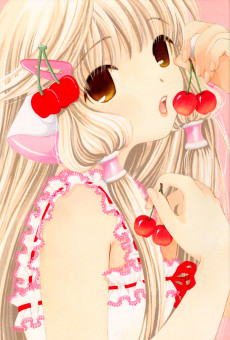
Chii

Rie Tanaka
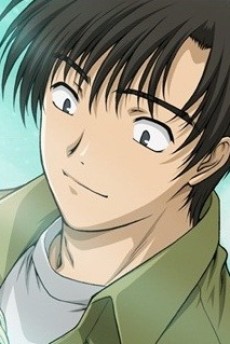
Hideki Motosuwa
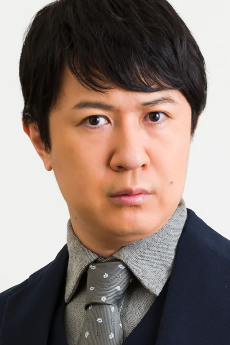
Tomokazu Sugita

Sumomo
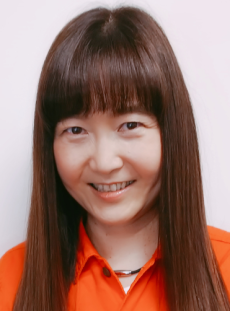
Motoko Kumai

Freya

Rie Tanaka
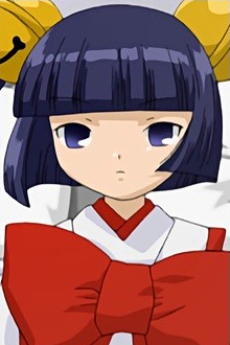
Kotoko

Yukana
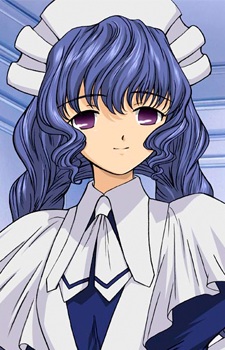
Yuzuki
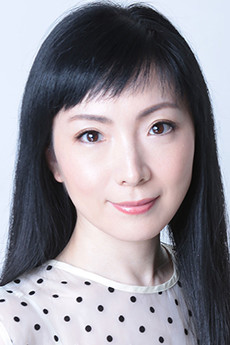
Fumiko Orikasa
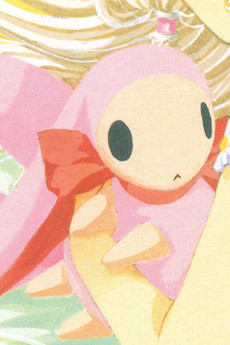
Atashi

Rie Tanaka

Yumi Oomura

Megumi Toyoguchi
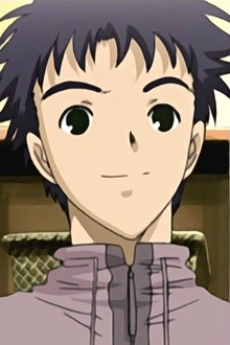
Hiromu Shinbo

Tomokazu Seki
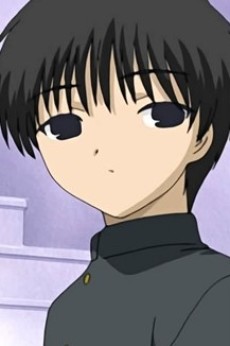
Minoru Kokubunji

Houko Kuwashima

Chitose Hibiya

Kikuko Inoue
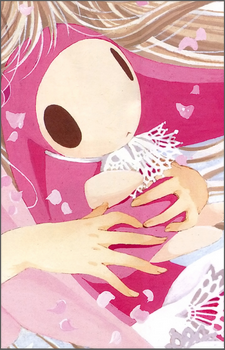
Anata

Rie Tanaka

Takako Shimizu
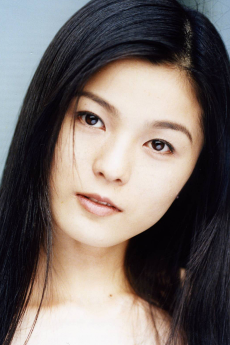
Ryouka Yuzuki
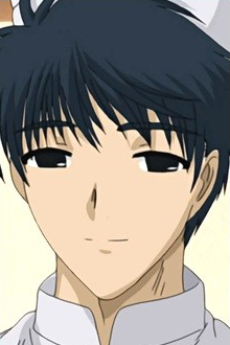
Hiroyasu Ueda
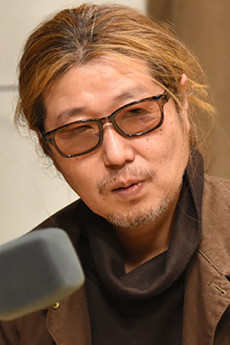
Yuuji Ueda
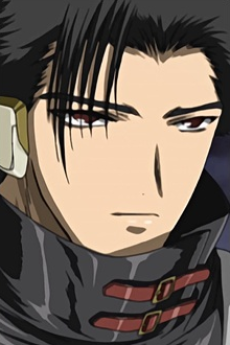
Zima

Isshin Chiba

Dita

Yuka Tokumitsu
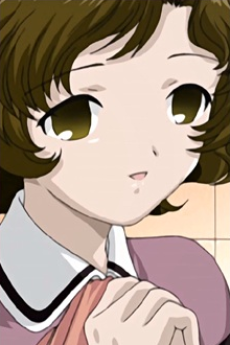
Yumi

Naomi Shindou

Yoshiyuki Kojima
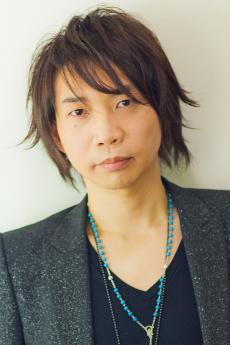
Junichi Suwabe
EPISODES
Dubbed
RELATED TO CHOBITS
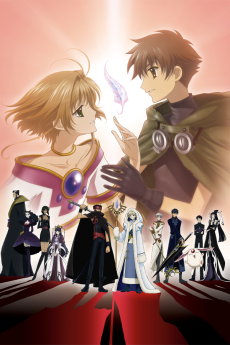 ANIME AdventureTsubasa Chronicle
ANIME AdventureTsubasa Chronicle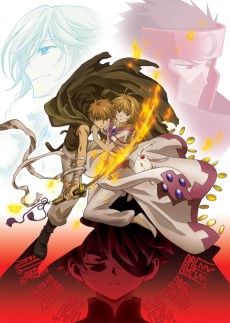 ANIME AdventureTsubasa Chronicle 2nd Season
ANIME AdventureTsubasa Chronicle 2nd SeasonREVIEWS

Daemonplay
75/100Enjoyable, semi-superficial relevanceContinue on AniListHave you ever wondered what the future of human-machine interaction will look like? A question that by its very nature doesn't only concern the people working in its respective industries but a question that has the potential to affect us all. One only has to take a look at the invention of smart-devices over the last two decades to properly understand the significance of the question "How will technology shape our understanding of human interaction as well as our understanding of decidedly non-human interaction?".
Chobits as a series falls exactly under this umbrella-term of "Human-computer interaction". As part of the romance and sci-fi genre this really shouldn't come as a surprise to anyone. Still it's interesting to look at this show from 2002 under this light. And that is part of what I will attempt to do right now.Still I'd like to begin the actual review section of this review with the usual topics:
- General Overview
The anime (an adaptation of a manga series with the same name) follows the "everyday life" of the young and technologically (and academically) inept Hideki Motosuwa and his robot companion Chi in 22nd century Tokyo. A city that still feels decidedly "antiquated". - Soundtrack
The soundtrack is nothing to write home about to be honest. It basically is what you'd expect from a romance and comedy focused show from the early 2000s. Slow melodies, soft female voices as backdrop whenever needed and overall nothing too special. Though I have to admit that the first few seconds of the opening theme are quite catchy in combination with the accompanying visuals. Chi comes to life and so does the song and the visual punctuation in the form of a spark is a really fitting start for each episode. - Animation and Art
Speaking of visual clues this is an area that didn't manage to leave an overall positive impression. While I don't expect stunning visuals and animation quality from a romance show I'd still like to see proper lip syncing...or rather I'd like to see lip movements at all. There were quite a lot of scenes (even if far from the majority) in which the characters conversed without any noticable lip movement at all wich unfortunately is enough to break your immersion a bit. Other than that though I hardly have any complaints.
Now that that's out of the way we can focus on plot and themes a bit more. As mentioned in the introductionary section of this review the show does indeed tackle the topic of technology's effects on human interaction both with humans and with technology (in this case robots). The focus obviously is on the interaction between humans and human like robots (so called Persocoms). Unfortunately the show really only begins to dive a little bit deeper into these concepts towards the end of its episode count. Nonetheless it is the source of most major conflicts that arise over the course of its plot. Many characters are burdened with a negative past due to this invention called persocoms. The loss of real human connection is the most commonly seen theme in this regard. A real problem once we take a look at our current social problems. The show is at its best in exactly these kinds of moments. When our characters (and towards the end especially our main character) are forced to confront their own reality and to ask themselves the questions "Are persocoms better than humans?", "In which way are they different?" and "What does it mean to love a machine compared to loving a human".
Since this show belongs to the romance genre it is quite self explanatory that it allocates a lot of its time towards the very last of those questions. The manga and the anime also differ quite widely in this regard (especially due to the very different endings). While I don't want to spoil anything I do see it as necessary to point out that the manga ending (from what I know) seems far more nuanced and especially less like utter wish-fulfillment. I will let you explore the show's answers to the above questions on your own though I wish it spent more time tackling each in a more fleshed out manner. Especially interesting are the peculiarities of Chi in comparison to the rest of the persocoms and how her being a far superior model to the rest affect both the nature of all thematic questions I have brought up so far as well as their answers or even potential sets of considerations.
Now for one final critique: The nature in which romance and especially its sexual component was portrayed, bordered on utter cringe for me personally. Seemingly random "sexual" mini skits are a regular occurrence. And the slapstick soundbites in the backgroudn really don't help to lessen the nosebleeding immaturity. Some might call that comedy I call it a waste of screentime especially after a certain amount of repeating interactions. In the same vein I find the obsession with the phrase and concept of the "one just for me" one of foolish naivety. And while you can certainly explain these behavioral characteristics from a pure logical perspective in the show (programming of course) I fail to see the necessity of the inclusion of such a blatant focus. In fact such a concept (I guess its equivalent would be the concept of soulmates in human terms) if one wants to include it at all would work far better in moderation. At least in my opinion.
But enough cirticism. I stil enjoyed a large part of the show. And Chi is obviously extremely cute. There is no arguing about that. So do I recommend it? Sure I do (if you can endure its negatives). Though it might be a better idea to read the manga is this particular case. I myself haven't yet done so but from what I've heard it's usually regarded to be the superior version of the story. So what are you waiting for? Strange coincidences, weird technological design decisions and a tokyo straight from the 1990s await you on this journey through the past's future.
- General Overview

Marander
50/100Dual projections of a fear of obsolescence. Love and human x machine antagonism once again in the spotlight.Continue on AniList“The town was completely empty. There were houses, and lights could be seen from the windows... But nobody was on the streets. I tried peeking in the window. There was someone there, but he was together with ‘it’. I looked in other houses. They all were together with ‘it’. Because it’s fun to be with ‘it’. Because it’s more fun than to be with people. So nobody comes out now. This town is empty. I’m going into a journey. I’m going to another town.”
[Atashi Dake no Hito. “A City With no People”. Chobits]SPOILER WARNING
If a few months ago someone asked me if I'd imagine I was writing this review, I would definitely answer no. My past self could barely imagine that someday I would make space on the list to watch a potential Madhouse romance classic, nearly 20 years after its release. And if I were asked if I would imagine my experience as exactly it was, my present self would also answer no. After all, despite the many caveats I'll put into words here, Chobits surprised me with a relatively pertinent discussion for something that started out as just a rom-com embroidered ecchi lace.
Chobits begins as a work exactly like what some of its genres and synopsis sell. Hideki Motosuwa is an 18-year-old boy born in a country town. Unfortunate by his failure in the entrance exam, he decides to migrate to a big city and attend a preparatory course. However, contrary to our common sense of what to expect, the culture clash between the two environments is significantly greater than it would be in a real situation, as Hideki's world is inhabited not just by people, but by robots with whom they coexist. These, of various sizes, shapes and functionalities, here present themselves by another name: “persocoms”. Don't worry, you'll soon learn more about them.
On one of his walks back home, at nightfall, Hideki finds a persocom abandoned on a pile of rubbish. With difficulties, the young man carries the heavy humanoid to his modest house and is able to restart it. However, what appeared to be a common abandoned model, in reality, shows a much greater complexity when you first come into contact with it. Stripped of her old memory and with vestiges of a much more advanced system compared to others, the persocom, now renamed "Chii", her apprenticeship, her relationship with Hideki and her mysterious past become the focal point, and the narrative follows from there.
The initial product is the attempt at an anime centered on comedy and that leaves its Sci-Fi in the background, while the element that occupies the most stage is the romance story filled with sexual jokes, involving moe situations, innocence and its heroine principal that exudes submission. The audience is amused by Chii's lack of knowledge about things and the mistakes she makes while trying to learn. The audience laughs at the protagonist and at the constant sexual situations, whether coincidental or accidentally created by himself. The public thinks the relationship that is built between the main couple is cute, despite the fact that, in this period of history, the pair is not defined as a couple. And I could have fun with this product too, if I didn't find it repetitive, silly and filled with unproductive episodes at times.
One criticism I make of the first half of the show and its ecchi atmosphere in general is that the applied jokes constitute a simplistic and time-saturated formula. The vast majority of gags are based on two main elements: sex jokes involving the protagonist's behavior, through his young adult virgin nature; and jokes with misunderstandings of sexual meanings, involving Chii's innocence and deviations during her apprenticeship.
In the early episodes, this serves the purpose of the characterization. However, the show evidently loses its way of humor as the same joke with porn magazines starts to appear in several of the episodes. Or, when any girl who approaches the protagonist induces the same reaction of sexual fantasy and shame (ok, luckily this behavior improves reasonably as the work progresses). In addition, more artificial situations, created solely and specifically to forge the joke, start to jump out, such as the scene where Chii finds a kitten carrying a handkerchief in its mouth and mistakes it for panties.
Amidst the application of ecchi, I must say that it is not just harmful in the context of repetition. In some cases, it is also an anticlimactic agent, undermining scenes that should have a more symbolic or dramatic weight. In this department, perhaps the most famous example is in the infamous EP24, when there is a reconciliation between Yumi and Ueda. I mean, the formation of a couple and mutual acceptance here are the key points that seek to move the audience and provoke reflection on the central theme of the work (I'll get to it soon). The dialogues and the weight of the lines are purposefully more dramatic, but the climax of the scene is interrupted by the fact that Chii takes off the clothes of Ueda's old persocom and offers it to Yumi, while the protagonist blushes.
In a certain point of view, the first half of the anime is necessary. The focus of the narrative is centered, above all, on Chii's learning and we see the character's development, the ability she acquires to communicate and the concepts she barely understood and that, later, she is able to understand. Unlike the protagonist, who squanders less development here, this portion is indeed important for the heroine.
But, on the other hand, I must say that I was disappointed with the amount of scenes and episodes that were not very useful for the plot in general. At moments, I really see the story move forward, like when we get in touch with Kokubunji and Yuzuki's backstory. In others, I find myself bored and want to drop the work, while in front of my face there are beach episodes, scenes of Chii looking for a panty store and episodes of Hideki terrified by an urban horror legend. It's boring, and this last one, in particular, is the one that my humble opinion attributes as the worst of the work.
Perhaps because I complained about the predictable and simple structure that follows the first half, I finally found myself satisfied with the work after its change in theme. That's because, as soon as the specific milestone of Shinbo's revelation hits the plot, Chobits has a shift from its core. The show's spotlight is no longer distributed over Chii and Hideki individually, but rather illuminates the entire stage and brings it all together in a central message that becomes more and more evident. Its greatest merit. Its important message aimed at viewers.
Chobits is a work that evokes a concept that has already been so explored and used, but that has barely deteriorated in terms of relevance. It's as if it were a “tin man”, but it will never rust. Since the human being was conceived as a creator of technologies and holder of the ability to give life to other intelligences, futuristic projections entered the universe of popular imagination and soon spread to paper, where the most diverse authors write fiction. They range from optimistic views that portray the magnitude of electronic resources and their impact on various social spheres, to pessimistic views that choose to point fingers at our own creations as superior and substitute for human beings. I know I'm about twenty years into the future with regard to Chobits, but several works have touched and will touch this theme even being ambivalent in these views, such as Sword Art Online, Psycho-Pass and Koukaku Kidoutai.
Fear of substitution is natural. Everything we create is liable to risk becoming obsolete one day, and the technical-scientific-informational revolution has only accelerated this process even more. As what is around us is always in constant change, it is evident that, at some point, we would ask ourselves if the human being itself would not become obsolete and would be overtaken by evolution. And, as much as its reflections are not philosophical like those in the titles I quoted above, Chobits is right in portraying this uncertainty, projecting a possibility that is not necessarily as romantic as it sounds, nor is it as atrocious as we imagine.
You see this duality from the perspective of relationships. While people are thinking creatures, they are also walking contradictions and beings endowed with defects, free wills, and memories that influence our worldview and reactions. On the other side of the coin, a machine or artificial intelligence is theoretically not bound by these fetters. We can put in any features and paint them according to our own individual palettes. Machines are theoretically rational and data driven, which is why artificial intelligences are often portrayed based on their purposes. That is the essence of a creation.
But at the same time, this limit also removes the layer that exists in human coexistence. Human beings are constantly looking to define themselves by the other, and the presence of another person, someone who is not you, talking to your ego and giving you the uncertainty of how you will react to each word, represents a glamor in social interaction. See? While we are limited, our creations are also limited existences. There are things we can do and things we can't. And there are things that machines can do, but others that only humans can provide, from the most intuitive act of having children to details of the psychological dimension of interaction between a pair.
That's why Chobits' message is impactful. The reality of the work, although fictional and somewhat distant, proposes a reflection based on the illustrations of its characters: what would a reality be like in which a relationship between a human being and a robot is possible? And, going further, on both sides, how would the species psychological deal with loneliness, or with substitution?
Personcoms represent an extremely important extension in this context. Their existence within society opens up the range of possibilities for different situations that would truly happen. For example, the portrait of Ueda and his stable union with Yumi, the persocom, depicts a pertinent illustration of adaptation during this incorporation of robots into society. Not only the development of human feelings for the machine is portrayed, but also the prejudice that society would potentially have, the inexistence of legalization for a stable union, and, mainly, the impact that this experience would have on those around them. Yumi, the human, and her separation-related drama is proof of that.
If that's not enough, why not talk about Takako and Shinbo? The illustration that revolves around Takako's drama is a great example of how this replacement also has a dark side. Like it or not, the naturalization of the machine as an ideal partner is a possible reality in this science fiction. After all, it is much easier to accept the one you created yourself and be sure of how it will react, that it will always be there for you, than it is to love those who essentially have their faults and accept them. And, little by little, this vision being assimilated into society, abandonment and loneliness are indeed side effects, to the point where we are not even more sensitive to others of our species. Just look at the quote I put at the beginning of this review. The scenario created by it says it all.
There are cases where we use this ability to paint our creations for other purposes. Kokubunji, for example, does not necessarily sustain a romantic relationship with his persona, Yuzuki, but instead draws on the flexibility of technology to immortalize his sister's existence. Here, there's an overwhelmingly optimistic side to the technology, though his obsession with the memories he once lost represents an unhealthy spot. See the pattern, reader? Chobits deals with this theme with some respect, as the reality of persocoms is not seen solely as negative or positive, but rather as a mixture of the two.
Unfortunately, not all characters in the work have relevant illustrations or some more expressive development. In addition to the protagonist, who is often a reason for jokes and whose development is based almost entirely on discovering feelings for Chii and her past, there are others that I would consider shallow in the context of the show. One of the greatest examples is Yoshiyuki Kojima, or, as we know him, "Dragonfly". His role in the work is to kidnap Chii to move the foreshadows of the script, his only motive being his interest in that persocom. He later switches sides and, again, his only job is to support the operation of hacking the mysterious syndicate's database. Without even a backstory, he's a veritable script lever, left and right, that doesn't do much for the message and that is forgettable to probably many of us.
But of course every story has to come to an end. There is no better way to get your message across than to complete it as an expression. Thus, after ten episodes in a second arc relatively superior to the first, Chobits brings together the confluence of its elements in two climactic episodes, in which Hideki finally realizes his feelings and he and Chii confess to each other. And I must say, my sincere apologies to anyone who was moved by this final part, but I believe that CLAMP made some logical slips in it.
Do not misunderstand me. The ending carries a valuable symbology, in fact. Ichirou's paternalism reflects the story that the creator himself and his wife attributed to Chii, keeping the hope that one day she will be able to transcend the tragedy Freya went through and find someone to match her. Ichiro instilled a program in Chii, and this program, at the end of its execution, makes it possible for all the persocoms connected to Chii to acquire, just like her, the capacity to love. In the anime, this isn't extremely clear, but it's interpretive. Persocoms' eyes become realistic for a while, which brings them closer to human features. After all, feelings are the main difference between machines and people, and here their acquisition would bring them closer to us. Dima blushes when Zima hugs her after the program runs, and that attitude is also a hint.
Other symbologies, such as Freya and Chii's lines about the button she has in her vagina can only be touched by “the one just for her”, gain a meaning more than the mere presence of ecchi, and that I need to appreciate. But at the same time, it appears that CLAMP has forgotten some of the sci-fi details that lack more tangible explanation. For example, why are Chii and Freya able to move around by jumping gracefully and seem to glide around town in episodes where Freya takes control of the body? Why do Freya's movements give the impression that she can fly? And why does this happen to Zima and Dima, too? It is assumed that all three are close models of persocom, and this physical ability may be implied, but as this is never formally explained or said, we only need to accept this “physics” during the robots' wanderings.
The factor that perhaps bothered me the most about this ending is the lack of detail in some of the sci-fi elements. Another example that raises this question is the functioning of the Chii program. How exactly can Chii be able to induce other persocoms to deliberately gain the ability to love? At what point did the acquisition of feelings become something transmissible by electromagnetic waves or a dataset that can be sent from persocom to persocom, without cables? As far as I know, the anime convinces us that Chii was able to learn to love due to her set of experiences plus the complexity of her model. So, the application of this program, despite being symbolic, is difficult to digest. It is difficult to accept that, while for Chii love has been a difficult path, for other artificial intelligences this is such an immediate and easy achievement, since the vast majority of them are not even assembled by their owners.
Other solutions the script comes up with, like Chii and Freya's ability to control their cables like telekinetic tentacles (yes, I'm not lying, she literally does that when Dima tries to stop her from running the program) make me question how much of logic was put at the climax of this work. And just like the physics that governs persocoms jumping from pole to pole, I am again forced to just accept and move on.
To be fairer, I must emphasize that these details are not always CLAMP's fault. I haven't read the manga, but in my wanderings around Wikia, I've found that in the source material Chii's program doesn't have this function, but rather represents a darker version of the heroine's journey. Rather than enabling persocoms to be able to love, the program was originally activated not when Chii found her love, but when she didn't. And its effect, originally, was not to create conditions for robots to win love, but rather the opposite, permanently turning off their facial recognition capabilities. This means that, in the original story, if Chii wasn't able to find "the one just for her", Ishiro would assume that none of the other persocoms could do that, and their ability to distinguish humans would forever be erased, dying along with the possibility of falling in love.
This ending makes a lot more sense. Deleting facial recognition functions is a much more tangible achievement to be done through the connection Chii has with other persocoms than transferring data that enables them to conquer their own feelings. It's a simpler solution, but it doesn't bump into the fact that Chii is much more complex than her “sisters”. In addition, she is also more visionary, as Ichiro would leave open to her daughters a future in which persocom models would be more complex and closer to Chii's, and evolution would bring this achievement to them. That said, I believe Madhouse has made an unfortunate choice here, overpriced for moving its viewers, but unfortunately sacrificing the logic the authors stabilized in this part.
Speaking of foreshadowing, I must say that the clues offered to the spectator in Chobits, although a little obvious in some of the moments, are present and relatively competent. The picture books that Chitose writes help us understand the reality of Chii's feelings and make up a “larger interpretation” when connected and related to understanding the end of the work. The phrases in the book are also illustrative of a reality in which behavior such as Ueda's would be morally accepted and disseminated, and this projection only adds to the reflection that the work attracts. Other elements such as character phrases that serve as a prelude to their later backstories, such as Yumi's comments on Chii and persocoms in general, are also welcome and I value them.
Finally, I don't feel comfortable commenting on the production on Chobits, as I can't use the same molds we're currently seeing as a parameter. All I can say is that the art, even dating back twenty years, still plays its role relatively well and is consistent in most paintings. As one of the most influential studios in the industry at that time, Madhouse did a good job in that department if you look at it chronology, and I don't think that's a surprise to anyone, although there's the age shock if, like me, you decide to visit this show in 2022.
The soundtrack is competent, from the calmest songs to the sound design of the most tense and sad moments. Despite this, I personally found some of the director's choices strange, like the one made in the Ueda and Yumi scene during EP24, which denotes expressively calm music for a moment that should have been more dramatic. I add an afterthought about opening as, contrary to popular opinion, I hated the fact that it was so static and so weak in its density of symbolism. Little happens in the storyboard, there is little fluidity and even less symbology. All that happens are changes in position and expression by Chi and Hideki in step with color, pixelation and music. Personally, I found it uninspiring, aside from giving the impression that the show is solely about romance between the two of them when in reality it isn't. As for the ending, although it is close to this archetype, my judgment is lighter. Fluid endings, full of symbologies, image transitions and deeper ones are rare, even more so at that time, so I can't charge much more than the reference made to Chitose's stories.
Watching Chobits, like the message the work tries to convey, was an ambivalent experience. Half of the work is tedious, with some considerations, and the other half is rewarding, with other considerations. Some characters compose valuable illustrations, while others are shallow. Science fiction projects a pertinent universe, but it has its problems of explanation. That's why, at the end of this review, as much as it surprised me for a genre I'm not so interested in, my enjoyment was balanced and I can't rate it any other than as balanced and neutral as possible.

TheRealKyuubey
90/100This may actually be Clamp's magnum opus.Continue on AniListIt’s the distant future, and while we may not have flying cars, hoverboards that actually hover, meals that come in pill form or full dive video games, we have at least developed the technology to turn computers into programmable waifus. So, not the darkest timeline by any means. For Hideki Motosuya, a socially awkward country bumpkin who has decided to move to the big city for the first time in his life to pursue his dreams of entering Tokyo University, these computers, called Persocoms, are a luxury item he can’t even afford to breathe on, let alone purchase. And yet, his string of bad luck comes to a crashing halt when he discovers an adorable persocom just lying in the trash, with nary an owner in sight. Taking full advantage of this opportunity, he takes the Persocom home, names her Chii(since it’s all she can say) and from there, his life takes an unexpected turn into silly hijinks, dreary romantic melodrama, and a sci-fi epic that will make you question what it really means to be human.
I guess you could consider this review an unofficial sequel to my Cardcaptor Sakura review, because we’re revisiting the three entities that made that anime what it was. First we have Clamp, the all female manga team that were the original creators of both of these anime, as well as several other classic titles. Second we have Studio Madhouse, their shared production company, and finally, we have one of my favorite anime directors of all time, Morio Asaka. Unless you count analog content like the Chobits special and the Cardcaptor Sakura movies, I’m pretty sure these are the only two series that can boast that they’re the product of this triple threat, and it’s a damn good combination. Madhouse has its faults, oh lord has it put out some stinkers, but it also has a reputation for being at least somewhat accommodating towards the styles of their many projects, although their budget allocation can be spotty. Clamp titles have a very distinctive auteurist style about them that some directors get, and some don’t, but they could not be in better hands than those of Morio Asaka.
From what I’ve seen, Morio Asaka is the kind of director who truly understands the tone and intention of any piece of work he’s adapting, and what’s more, he doesn’t just create a one to one faithful adaptation of the manga... He finds creative ways to change it so he can help the story’s best qualities stand out even brighter and better fit the animated medium. I’ll get more into that later, but Asaka is also a gorram wizard when it comes to working under a tight budget, and true to form, Chobits might just be one of the best looking low budget anime I’ve ever seen. On screen movement is obviously kind of stiff, but it’s concentrated well enough that the most articulate motion can happen only when needed, and money is saved largely in moments where cheaper animation and cut corners won’t be too noticeable. He likes to play with both lighting and shadows in order to make an otherwise cheap panning shot look all the more striking and engaging, and he also employs a lot of deceptively simple visual effects that honestly still hold up today.
For one thing, he uses a lot of layering effects... When a character is walking in the background, different objects like cars and electrical wires/poles pass them in the foreground in ways that were probably really cheap to pull off, but that also add a ton of depth to the scenery. He often uses odd camera angles not to distract the audience during lengthy exposition dumps, like a lot of modern anime do, but to communicate shifts in tone. The character designs are basically the same as in the manga, these look like basic early Clamp characters... Basically proportionally accurate humans with slightly moefied faces. The only real difference in design is that while the manga’s aesthetic had a slightly sexier edge to it, Asaka’s take on those designs skews more toward gritty realism, with any appearance of fanservice feeling more incidental and less in your face.
I don’t talk much about the music in anime anymore, but you can’t not talk about the Chobits soundtrack, because it is an unforgettable part of the experience. Despite its simplicity, the opening of this series is almost unskippable, just an addictively adorable conversation between Chii and Hideki set to music as they slowly drift closer together before pixeling out. The actual background soundtrack sounds smaller than it is, because there are a handful of tracks that get reused a lot, but those tracks are quite versatile. There’s a lot of saxophone and basically just upbeat jazzy music during the less serious material, but they’re not afraid to slow things down for an unsettling piano tune when the more mysterious elements of the story come into play, which is nothing compared to the chilling techno beat of Dark Chii’s theme. Also I should mention there’s a character song CD, and you should look it up simply for the poorly translated Japanese puns in the song titles. I swear there’s a track called “I Beg Your Pudding?”
The English dub was an early Geneon effort, and while I’m not a particular fan of their work around that time, this is definitely an exception. It’s also a strong contender for Crispin Freeman’s strongest role ever, because he is playing way against type here, and he slays it. You’re probably used to hearing Crispin performing deep, seductive voices and cynical, sardonic voices a lot, but Hideki is a one-man emotional roller coaster, and Crispin proves his range beyond a shadow of a doubt while playing him, from his pathetic over the top freak-outs to his genuine chemistry with Chii, and his rarely heard angry line reads that can honestly come off as pretty badass, although not to Alucard's standard. The rest of the cast consists of Geneon veterans, the most notable of which include Tony Oliver as just a really likeable and extroverted best friend character, Monah Marshall as one of her more believable little boy characters, and Wendee Lee playing a flirty teacher with an otherwise pretty sad and tragic past, which leads her to some of he more emotionally gripping line reads of the series.
If there is one slight disappointment in the dub, it is unfortunately Michelle Ruff as Chii, and before anybody says anything, I’m not saying she did a bad job. She is, after all, one of my all time favorite voice actors, and she does a great job playing a talking computer who’s trying to adapt to the world around her while always remaining as cute as possible while doing so, but the problem is that the original Japanese voice actor, Rie Tanaka, did a slightly better job at it. Michelle Ruff’s performance is adorable and authentic enough that I would never complain about it, but Rie just added an extra layer of depth, like she could add a subtle dose of underlying meaning to even the flattest and most robotic line read. That’s a hard act to follow, I know, and Michelle Ruff did an admirable job trying to capture this, but there’s still something missing from her performance. Still, that’s really the only complaint I have about an otherwise outstanding dub.
At first glance, the concept of this anime really hasn’t aged well... At least, not from a technological perspective. Don’t get me wrong, the idea of Japan being the ones to invent artificial intelligence in the form of sexy robot waifus definitely tracks, but the idea that those waifus could replace computers? Yeah, not so much. Spoiler alert, cell phones have replaced computers. They’re small, they’re convenient, they have actual monitors so you don’t have to plug them into TVs to see stuff, and even though they cost about 10% as much as a persocom, we still bitch about how expensive they are. Persocoms, as a concept, just aren’t practical or affordable enough to see widespread use, especially when they cost about as much as a decent used car. The reason this doesn’t bother me, however, is because I don’t think we were ever supposed to take the existence of Persocoms literally. Rather, they were probably always intended to be a metaphor.
There’s a strange phenomenon that’s been going on in Japan for a few generations now, and it has been explored in various different anime. This is because this phenomenon has a lot of layers to it, several individual issues that are all interconnected through Japanese culture. For the version that I’ve heard, from a few sources, it all goes back to Japanese women losing a lot of rights through marriage. I don’t know if this is a legal thing, or just something that’s traditionally expected of them, but a lot of Japanese women started getting married and starting families later in life for the sake of pursuing an education and a career. This has led to a lot of young men having no available romantic prospects, so they’ve turned into hikikomori... Basically social shut-ins who never go outside. This can also be caused by other factors, like the weirdly intense social minefield of Japanese high school and the workaholic culture of a lot of Japanese businesses, but I digress. Different anime have explored different areas of this phenomenon, some offering better takes than others(with Darling in the Franxx probably having the worst one by far) and Chobits is no exception, using Persocoms as a metaphor to ask a very crucial question... Can a relationship with a computer really replace a social life with other humans?
And I know, at first glance, you’re probably giving me a dubious side-eye as you watch Chii march through the streets chanting “Underpants” while her owner freaks out over what should be very easily solved problems, and oh boy, he just keeps meeting all these sexy harem flavored love interests... And yeah, Chobits does start out on a really silly, kinda bawdy note, landing somewhere in that lame PG-13 realm of being silly and offering up lewd scenarios while never actually becoming lewd itself, as it signals very early on that it’s going to be operating both as a harem series, and as one of the last big Magical Girlfriend series, the latter being a pretty ancient anime trend that died off quietly in the mid-2000s. Having said that, even if these two genres aren’t your cup of tea, you’re probably still feeling drawn to this anime purely because of the mystery behind Chii’s existence, and because of just how likeable Chii and Hideki are, both as individual characters, and with the undeniable chemistry behind their dynamic.
Chobits certainly takes the scenic route in getting where it wants to go, lulling the viewer into a false sense of security as it lays the groundwork for something way more profound down the line, but that groundwork is there, even if you don’t notice it your first time through. Clamp has always had a tendency to try and redefine or deconstruct the cliches and conventions of the shoujo demographic and romantic comedies in general, and Chobits is probably one of their smarter efforts. There are several moments in the first third of the series that will initially strike you as more or less normal shoujo/rom-com moments with a slight twist to them, only for the reasoning behind said moments to be revealed several episodes later, leaving you stunned at the implications not only of what you previously thought you understood, but what must have been going on off camera this whole time.
For one particularly potent example, you may notice that out of all the romantic options that Hideki is blessed with, none of them really act like your typical harem love interests... Nobody throws herself at Hideki(except Chii), nobody blushes furiously at him just for his niceness, Nobody confesses to him or asks him seriously about his love life... Nobody puts him on a pedestal for being nice, but at the same time, it never feels like he’s being friend-zoned over it. Even with Yumi, the most forward of his female friends, her behavior towards him never feels like anything beyond teasing a sempai for sport. Any sign we ever get of this harem actually existing comes from Hideki’s imagination, which isn’t even that lewd, and he mostly tends to idealize them rather than objectify them. Still, it’s important to note that all of these characters play a larger and more complex role in the plot than you would ever guess from their first appearances, and some of the glimpses we get into their lives prove them to be more authentically human than you would usually expect from either genre.
I’d also like to point out how impressive it is that Chii feels completely authentic to her identity in the story. Y’all should already know how much I love when a weird or unique concept is explored as far as it deserves to be, and Chobits does a LOT with its concept, but more to the point, seeing stories and characters drift off from their established concept is such a pet peeve for me. Like, one reason I never really liked the movie Up was that according to the text of the story, the dog collars were just supposed to translate simple dog thoughts behind their barks. This idea quickly goes out the window as the dogs start making objectively intelligent conversation, responding to human speech as if they understand it, and finally, just flying little fighter jets. Chii, on the other hand, feels believable, from her misunderstandings to her hilarious attempts to mimic Hideki, and while we see her in various states of undress, neither her body nor her naivety ever feel sexualized. That happens to be one of many severe missteps the story could have made, but thankfully never did.
If I had one complaint about the way this story was told, it would have to be the pacing. Like I said before, Chobits takes the scenic route in unfolding its plot, giving you time to become immersed in the setting and thoroughly attached to both of it’s loveable leads before things start to take a darker turn, but it takes so many episodes to make this shift that certain elements of the writing start to become kind of grating. This show does have a good sense of humor, but there are still certain jokes that are more cringe than hit, and I could easily see certain less patient viewers bowing out early because of this. Even after clues start dropping, and the story starts to deliver on some gut-punch twists, the narrative isn’t always tight enough to stay focused on the progression of the plot. I’m not sure how all of this could have been saved, because while I do think 26 episodes(more like 24 with two recaps) was a bit too much, 12 episodes would have been too few, and I don’t know if there was a middle ground option at the time.
I would also never forgive myself if I didn’t touch on one of the most important changes that Asaka made to the material. About a decade ago, in the early stages of my blog, back when I had maybe half a dozen reviews to my name, I wrote a short editorial about one major difference between the manga and anime versions of Chobits; It’s kind of implied in the anime, but never directly called out, that people can have sex with their persocoms. It’s established as unusual that Chii would have her on/off switch placed inside of her genitalia, which begs the question, why are Persocoms anatomically correct in the first place? Luckily it never becomes a thing, so you don’t have to ask about this, or all of the uncomfortable implications surrounding it, but in the manga, it’s just there. I haven’t read the manga in 20 years, but I distinctly remember a few mentions of this, and to say that it doesn’t improve the material would be putting it mildly.
Now, glossing over the very real moral dilemma of mass-producing a human-shaped artificial-intelligence sexual partner, acknowledging this detail in-universe means there are several uncomfortable questions that have to be answered. Are male Persocoms also fuckable? Is it dangerous to engage in intercourse with a machine? Can they do anything sexual other than being pillow princesses without risking serious injury to their owners? Can they do mouth stuff? Can they do butt stuff? Is it morally responsible to leave Persocoms in the care of children? How are we to process the existence of child Persocoms, given all of this information? You may say I’m over-thinking this, but remember Hideki’s dilemma over falling in love with someone who’s not human? I swear, in the manga, his dilemma was “Can you fall in love with someone who you can’t fuck without factory resetting her?" So yeah, thank you, Morio Asaka, good change.
Morio Asaka generally did a lot of favors for this series, making it substantially less lewd and horny, which in this particular case, I actually think was the right idea. There’s so much substance in this show, which clearly had a ton of heart and brains poured into it, that too much excess and debauchery would have tainted its overall message. That’s also not to say it ignores sexuality in adult relationships, oh no, this series is very mature, and it’s kind of brilliant how the complexity of character dynamics gets more and more mature the farther they drift from the far more innocent Hideki and Chii. I also appreciate how this series doesn’t beat you over the head with what it has to say. Rather, it asks a lot of questions about mankind’s relationship with technology, and it provides you with character backstories and sub-plots that explore the concept in different ways, but then it backs off and lets you come up with your own answers. Despite whatever your first impression of this series may have told you, Chobits is intelligent, deep, and well worth checking out.
Chobits was recently available from Funimation and is easy to find online, but due to recent events, I don’t know what the future holds for it. The original manga is available from Kodansha comics.
Like I said before, I love when an anime takes a bizarre or unique idea and explores it at least as much as it deserves, leaving no stone unturned and no implication ignored, and while Chobits does pull a few punches purely in the interest of not compromising its tone and vision, it still boldly goes farther down it’s desired path than most anime ever will. It possesses more depth and complexity than any harem or magical girlfriend anime I’ve ever seen, and yet even if it was just some silly romantic comedy, it would still be worth watching purely on the strength of its two protagonists alone. Hideki and Chii are both innocents, each in their own way, and they’re trying to live their lives and pursue their dreams in a very adult world that won’t adapt to them, forcing them to grow and change out of necessity, no matter how dark things get. I do wish the story had been executed a bit better, but I’d still whole-heartedly recommend this series.
I give Chobits a 9/10
SIMILAR ANIMES YOU MAY LIKE
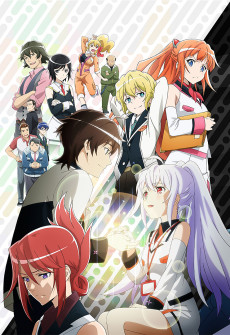 ANIME DramaPlastic Memories
ANIME DramaPlastic Memories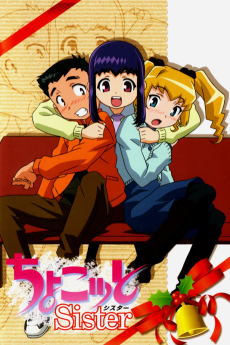 ANIME ComedyChocotto Sister
ANIME ComedyChocotto Sister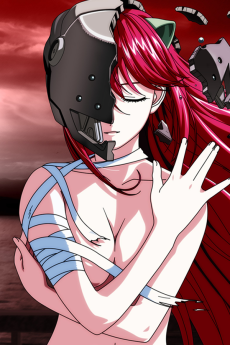 ANIME ActionElfen Lied
ANIME ActionElfen Lied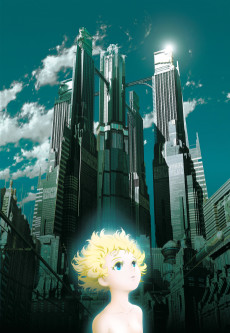 MOVIE AdventureMetropolis
MOVIE AdventureMetropolis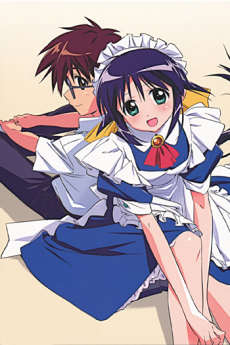 ANIME ComedyMahoromatic
ANIME ComedyMahoromatic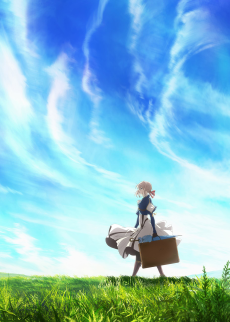 ANIME DramaViolet Evergarden
ANIME DramaViolet Evergarden
SCORE
- (3.5/5)
MORE INFO
Ended inSeptember 25, 2002
Main Studio MADHOUSE
Favorited by 1,438 Users


